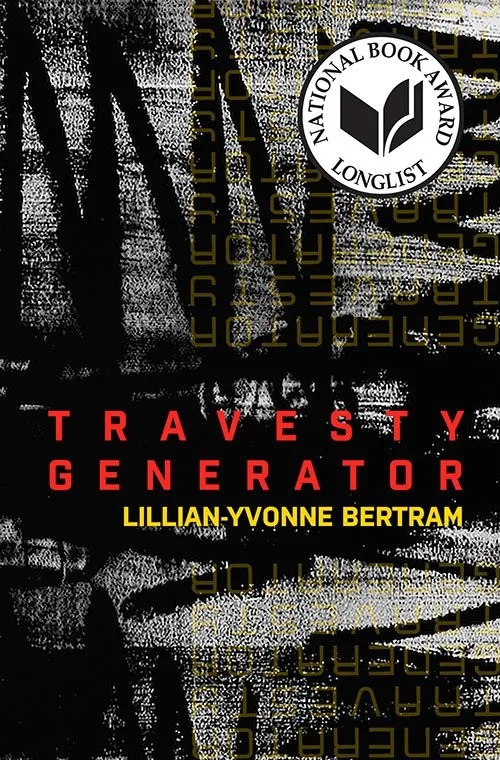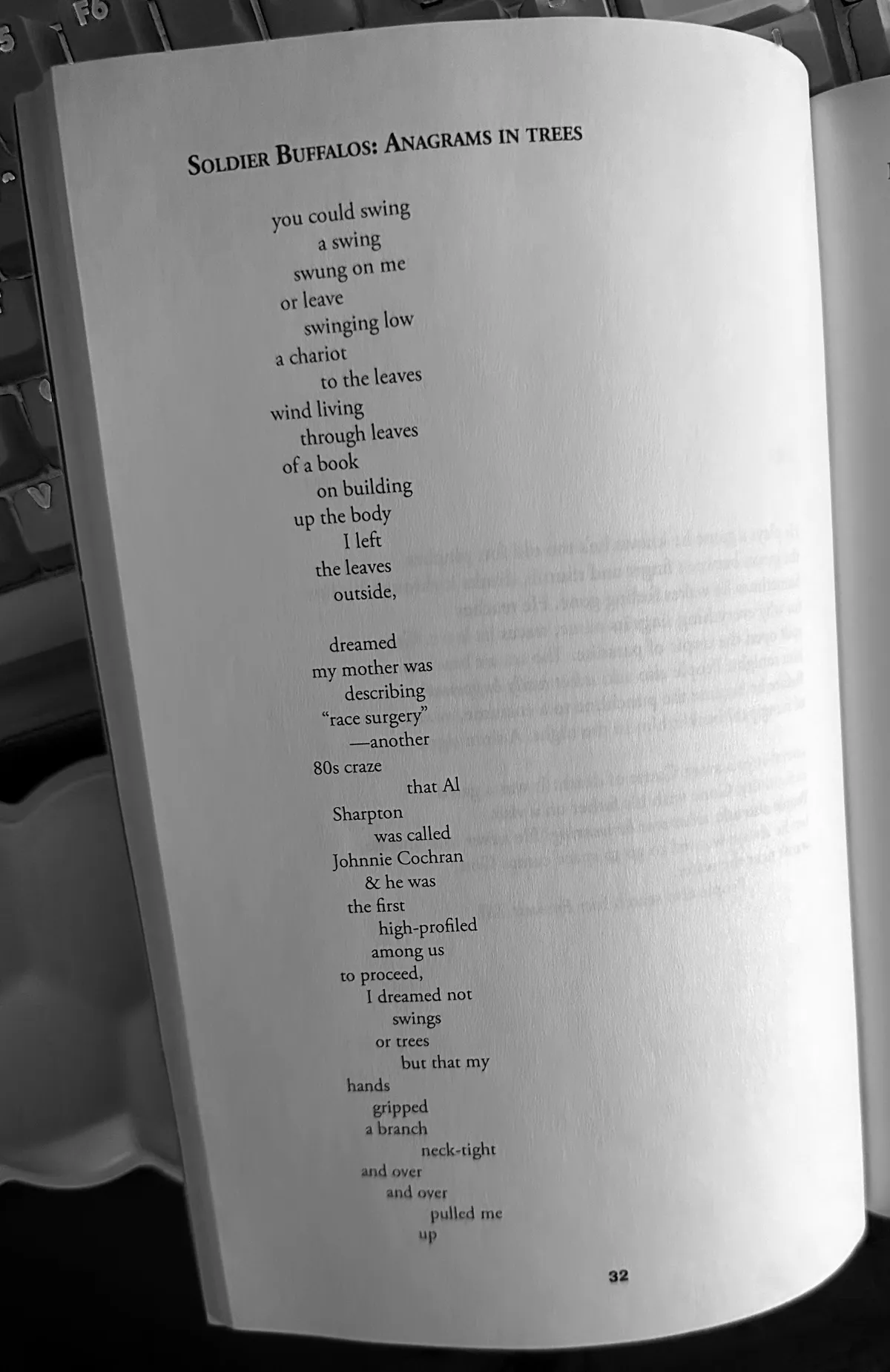I read TRAVESTY GENERATOR by Lillian-Yvonne Bertram for the first day of the Sealey Challenge.
For day one of this year's Sealey Challenge, I re-read Travesty Generator by Lillian-Yvonne Bertram. It's been at least 4 years since I read it last, back when I had a sort of flimsy sense of being a poet. I don't think I fully internalized everything it said back then, and bet that if I were to come back to it again, I'd still feel the same. What is said in this book feels massive.

Noemi Press, 2019 | Designer: Sarah Gzemski
This blurb from Douglas Kearney oriented me to the book:
"Through code poems where glitches are refrains, we witness systems that have made patterns of their errors. When in the process do we process that such glitches need scare quotes? That some accidents are power in action? Lillian Yvonne-Bertram’s ominous Travesty Generator works the problem again and again, a cyberBlues of permutating loops both automated and desperate. So, when she (re)writes, “The story does not compute,” I hear a robot and vulnerability, like AutoTune in 808s and Heartbreak. I also hear a brilliant Black shade in the machine, playing counter ‘rithm in the operating systems of racial and gender violence, poetic form, and the lyric voice."
I found myself being pulled in by the cyclical/whirlpool-esque form of some of these poems, especially the ones which were variations the same text generated by randomly omitting the beginning of sentences. Or at least, that is my understanding of their construction. Not all of them did this, from what I could tell, but in “Counternarratives,” Lillian-Yvonne Bertram arranged the sections in such a way that slowly and appropriately revealed the poem’s pressure points. It felt like a toothache that sharpens and stabs, then dissipates only to sharpen again.
Still, it is all there from the first line:
“…God’s gonna trouble the water.”
On a re-read, the first line/section rings with the expansion that comes in section “[11]”:
“…He never told anyone, but he always wanted to go to space
camp. …but God’s gonna trouble the water, bloody the
lawn he stands on.”
Every time a line reappears, it brings with it a new turn in the poem, something new to attempt to grapple with. It is a testament to Bertram’s use of form that the poem never really buckles under the pressure of all that it builds. It is sturdy, steadfast, and honest; contained perfectly; and for me, was the moment the project of Travesty Generator felt crystal clear.
To wrap up this entry, I want to leave this poem from Travesty Generator:

LINKS
TRAVESTY GENERATOR
LILLIAN-YVONNE BERTRAM
THE SEALEY CHALLENGE